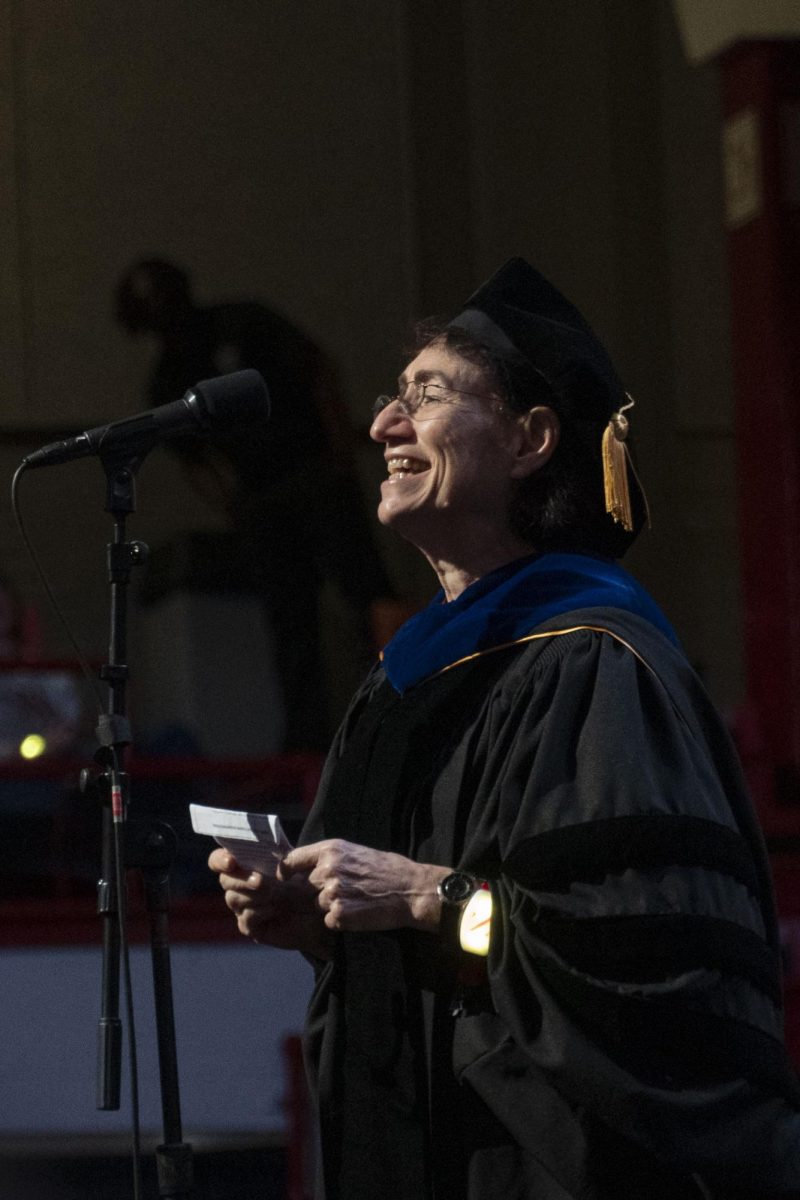By Jennifer Nelson and Peter Shanley
America is waking up this morning waiting for its next president. But as absentee and provisional ballots continue to be counted in Ohio, Iowa deals with mechanical voting problems. And, as in the 2000 election, the outcome may not be quick to come.
“It’s been a long night,” said Sen. John Edwards, the democratic candidate for vice president, in an address to supporters gathered at Copley Square. “But we’ve waited four years for this, we can wait one more night.”
Just after midnight, as news reports carried on with predictions of state outcomes, Northeastern political leaders said they still remained confident in their candidates.
“I was very confident at the beginning,” said Annabelle Guerra, president of Northeastern’s College Republicans. “I left [Leers on Boylston Street] because I’m still confident that we are going to win.”
Heidi Buchanan, president of Northeastern’s College Democrats, said it was in Kerry’s best interest to wait for every vote to be counted.
“He shouldn’t concede too early,” she said. “That was [Al] Gore’s mistake in 2000.”
Edwards effectively ended the wait Tuesday night with his announcement that his camp was not ready to concede.
By 2 a.m., the margin of votes separating the two candidates in Ohio was less than 100,000, with what is expected to be more than 250,000 provisional ballots still uncounted. Provisional ballots are ballots completed by registered voters who do not have proper identification on them at the polls, or whose names are not on the rolls as eligible voters. These voters are allowed to fill out provisional ballots, which are set aside in case a race is too close to call in a state. Final tallies of provisional ballots will not be released until 11 days after the election.
Ohio federal appeals courts decided early Nov. 2 that partisan challengers would be allowed to question voter eligibility at the polls. Over 3,000 Republican challengers were in Ohio yesterday, which may have led to more provisional ballots as voter eligibility was brought into question.
Absentee ballots must also be counted in the battleground state. Absentee ballots in Ohio must have been postmarked by Nov. 2 in order to be counted.
Buchanan said having to wait so long for a clear winner should not be necessary.
“I think the voting system needs to be unified. It shouldn’t take this long to find out who is our president,” she said.
Florida, the second of the trio of predicted key battleground states, was projected relatively early in the night in favor of President George W. Bush with 99 percent of precincts reporting shortly after midnight. Pennsylvania, the third crucial battleground state, reportedly went to Kerry with 51 percent of the vote and 98 percent of precincts reporting.
Kerry took the state of Massachusetts with 67 percent of the vote with 97 percent of precincts reporting. He topped Bush in the popular vote in his home state with 1,739,506 votes to Bush’s 1,045,186 votes.
Most states followed the same voting pattern as in the 2000 election, and there were few surprises as the votes were tallied last night.
As the nation waits for final votes to be counted, Edwards assured his supporters every voice would be heard.
“We made a promise to the American people that in this election every vote would count and be counted. Tonight, we are keeping our promise and we will fight for every vote. You deserve no less.”
– Staff writers Sarah Metcalf and Peter Shanley contributed to this report.








